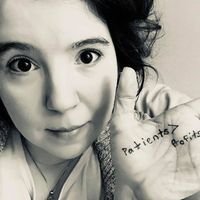Search the Community
Showing results for '"Weight gain"'.
Found 15,898 results
-
Hi macmadame, up until 2 weeks ago i was losing the 2 lbs a week and not feeling hungry. So dr kwon's nurse suggested going on Protein Shakes only for a few days to jump start my system again. I have picked up the pace as far as exercising. I am wondering if it is muscle that is the weight gain?? How long have you had your band.? Almost 90 lbs!! That's great, good for you. I go back to the dr. Next week. I'll see what happens. Thanks for answering.
-


newly banded soreness by the port.
thebandedgirl replied to purple3797's topic in POST-Operation Weight Loss Surgery Q&A
What you're going through is completely normal. You had a major surgical procedure done, of course you're going to hurt! Some people don't seem to have much pain at all, but I really wondered what I'd done for several days after I had surgery. You'll feel better soon, though. I promise! Give it another week. As for the weight gain--you were pumped full of Fluid when you had surgery. Also remember that your body has gone through a major trauma. This is a time when you need to focus on healing, not on the scale. Your weight will go down, but your body needs to heal. And port pain? Again, normal. I still get port pain, unfortunately. *hugs* All normal normal normal. And it's also normal to be worried and wonder what's going on :blushing: Hang in there! -
Ditto with all the comments above. How many calories are you taking in daily? I, too, had no issues drinking, and I also had a lot of water weight gain due to the IV for a few weeks. It is normal.
-


Is This The Right Thing???
pink dahlia replied to mebnme's topic in Tell Your Weight Loss Surgery Story
hi there, its normal to waiver back and forth but i found that when i had done my homework, i felt very secure with my decision to get banded. i was a thin child too, but started having a little weight gain around 30 yrs old and it just went from a little to alot. im 54 now, i was banded last december starting at 225 lbs. i followed the dr.s rules 95% of the time and have had almost no discomfort at all. (the 1st 10 days felt like a badly pulled muscle, i didnt use the pain reliever after the 3rd day, didnt need to) im now 170 lbs, and my days just keep getting better and better ! i swim 3x a week, and im starting with a ymca running program ! (tommorrow ! Me ? a runner ?? No way !!!!) i no longer have sleep apnea, my digestive problems are gone, i get compliments on how i look all the time, ive gone from frumpy, stretchy old lady size 18-1x clothes to size 14 skinny jeans and cute attractive tops. need i go on ? My only regret is i didnt do it sooner ! You MUST make a decision for YOU, not based on others feelings , cause its not them that has to live in YOUR body. hope all goes well for, good luck ! -


Pancreas problems and female issues- Ladies-please?
sizewize replied to Doinitformykids's topic in The Gals' Room
I have no medical advise to offer whatsoever but just wanted to tell you how sorry I am for all the troubles you're having and I hope all goes well for you. I was banded two years ago but have only lost 60 lbs. because I was just diagnosed with something called PCOS and that causes weight gain or inability to lose. My weight is all in my stomach and I hardly eat but gain nevertheless. If anyone with PCOS could advise me I'd be appreciative. Good luck to you. -


Hello All! This Is My First Time Here So Here Is A Little About Myself!
ShrinkingMama posted a topic in Tell Your Weight Loss Surgery Story
Hi all! My name is Carisa and I live in New Jersey. I'm a proud police officers wife for 4 years now and we have 2 AMAZING children! My daughter Ava is 3 1/2 and my son Joey is 22 months. My family is my WORLD & my everything and the main reason why I'm going to have VSG. I'm a stay at home mom and although everyday isn't rainbows & cupcakes I wouldn't have it any other way! So, let me tell you how I got to where I am today. I was not overweight as a child nor a teenager. In high school i was 140 lbs throughout those 4 years. No matter what I ate I never gained a pound! And let me just tell you that I did eat everything and anything I wanted. My family is Italian and as many of you fellows Italians know, everything we do revolves around FOOD! Anyways, after high school I got into a bad relationship and I think thats when I started to gain weight. We would eat CRAP food at 3am at least 3 times a week. I was never one to work out. Honestly, I hate any kind of exercise. So anyways, I finally get out of that relationship and in the end of that I probably gained 40-50 lbs. I did weight watchers a few time but I never lost a real significant amount of weight. Then, in October of 2007 I met my husband. By the time I got pregnant with my daughter, I was 200 lbs. (BTW, I'm about 5'6) So, while I was pregnant, I did what any other pregnant woman does. EAT! Plus, during the last 3 months of my pregnancy, I was on STRICT bed rest. When I was about 25 weeks I started going into labor. They put me on medication to stop the labor and the bed rest. They gave me steroid injections to increase the babies lung development in case she did come premature. So the bed rest didn't help the weight gain since I was only allowed to get up to go to the bathroom. Well, I gave birth on January 15, 2009 to a beautiful, healthy (FULL TERM)baby girl, weighing in at 240 lbs . I think I lost about 25 lbs afterwards. Definitely not the whole 40 lbs. Then, I tried Weight watchers ( again) , Jenny Craig, diet pills, etc. Once again, never lost anything significant. 22 months later on November 14,2010, I gave birth to my son. ( NO BED REST THIS TIME) I only gained just about 20 lbs during this pregnancy.(THANK GOD) So now I'm back to 240. So here I am, with 2 kids, heavier then I have EVER been. So again, I loose about 20 lbs. Tried weight watchers (YET AGAIN), diet pills again, jenny craig again, Overeaters anonymous, hypnosis slim fast, etc. NOTHING HELPED. This summer we took the kids to Hershey Park. I wanted to take my son a ride and they made me get off because the seatbelt wouldn't fit around me. That just KILLED me. That was, I think, the straw that broke the camels back. Obviously nothing else was working so I decided I needed to do something drastic. So here I am, sitting here weighing 255 lbs. After going to 2 other doctors ( & seminars) I finally found my surgeon. And I LOVE HER! In the beginning, I had FULL intentions of having LapBand. However when I went to meet with Dr. Schrope (my surgeon) and she told me how much better results she has seen with the VSG and that so many people come back to her with the lapband and say " Get this out of me" and then do the VSG. There was just so many things that I really didn't want to deal with, with the lapband. The only thing I was really worried about with the VSG was the surgery itself because I've never had any kind of surgery. Like she said, if I'm going to do this, do it right the first time. So thats what I'm going to do! And I'm super excited! I'm meeting with the nutritionist next week, have to get the blood work, endoscopy, etc. I can't wait to start my journey to my new life!! My family deserves the best "ME" , and so do I!! Thanks for hearing my story!! Carisa -


How Long before you feel normal again 17 Days Post-Op
Lorey_a posted a topic in Gastric Sleeve Surgery Forums
Hi All, Just wanted to know what others have experienced. For some reason I am having daily anxiety. I absolutely can't stand it as it hits out of nowhere at all. I am only 17 days Post-Op, take my vitamins daily, and still taking my Metformin until I am blood tested again. I do not want to go on an anti anxiety medication. I had been on Lexapro for 4 years at which point I put on a lot of weight going from a size 4 to 1-2X. I lost all motivation on working out as well. I went off the Lexapro completely 2 months before surgery and started actually caring about myself which is why I decided to do this surgery so I could get my health back on track. Following my weight gain, I developed diabetes, Apnea (now using a C-Pap for a year) and NASH of the liver. I notice exercise helps with the anxiety for sure but I cant seem to get a decent response from the medical community to help me feel better about this. I asked my surgeon why this sudden onset of anxiety that hits for what seems like no reason at all and his response was if I am eating right and exercising that this could be the cause because of sudden change and that maybe people are treating me differently and all of this is causing anxiety. I then told him no - people are not treating me differently. My family is amazing with all of this and I am working out of the house so have not been around others for them to treat me differently. In my case this is absolutely not the case at all. I pressed on asking if chemical changes in the body could be happening due to the surgery that may be causing this and he said yes. Wondering why I had to keep poking to get that response at all and yet because that was not the first response I am even doubting that. Why not just tell me that since I made it clear I am having these spikes out of nowhere and can't figure out why. I am finding myself overthinking everything right now honestly. Wondering how I will tolerate eating anything at this point or will I ever be able to. My doctor keeps his patients on a 5 week post-op liquid diet before you go on to a pureed / soft food diet for another 3 weeks. So unsure of myself right now and considered I made a huge mistake and so very much want to get passed this feeling more than anything in the world. Part of me is happy I did the surgery for my health and the results of weight loss I have seen thus far but another part wonders why I could not get back on track on my own and worried about long term complications. Like once I start eating will I have a sudden stomach leak, will I have no ability to hold down food or end up on liquids for the rest of my life? Will I ever be able to enjoy a glass of wine again and comfortably get on with life in a better more healthy way. Will I end up with Gallstones that cause another surgery or will I have stomach blockage in the future and how will I know if I do? I want to celebrate my choice to have done this and enjoy the weight loss but instead I am having so much self doubt and it's making me miserable. My liver health alone was cause to do this along with the diabetes so what is my damn problem? It is really hard to deal with this and I'm frankly pissed at myself for letting the anxiety get to me. I am considering going back on a lower dose of Lexapro again at least until this simmers down as I am hoping this is a chemical change in my body due to part of the stomach being removed and all the dietary changes just concerned it will make me not give a crap again and go lazy. IDK, if I knew factually this was all going to be a temporary reality then I would do it until the body goes back to normal. -
I realize that everyones case is different but it would be nice if there were guidelines that all the Drs. have to follow. I also was also found to have a "pouch" apparently my band was too tight and I ended up with the flu one weekend...needless to say there was alot of throwing up. They are guessing this is the reason for the pouch. I am completely unfilled and am to stay that way for 1 month. Then I am to have another fluero, if it is ok then I will start with small fills and if not then another month of non fill. I hate having no restriction and I am scared to death of any weight gain I may have during this time. Just makes me wonder when I read that some are told soft foods where as I have no restrictions of any kind as far as foods.
-

One of my personal pick-me-ups...
RyanTheGirl posted a blog entry in Uncencered and not always polite!
A testimonial from the website of the hospital I will be banded..... insipires me whenever I feel like I need a pick-me-up... just wanted to share. I have found that there are certain "stones" that you must claim as your own and use with almost religious zeal to keep the tool of bariatric surgery sharp and effective. I think every person who has this surgery builds their own cairn out of the stones that they discover work best to encourage them. So here are a few of mine. Stone #1—Quiet Reflection This one takes different forms for different people—prayer and meditation, transcendental sauntering, yoga, sitting quietly, being. Take your pick, but this is an important discipline as it keeps the bariatric patient in touch with the one thing that our weight and former dependence on food distanced us from—our feelings. You must think about how you feel, stay aware of how you feel and set your compass each and every day to make all of the choices that keep you feeling good, feeling lean, and feeling in control. Stone #2—Meaningful Movement Do something. For me the compliance to this particular "stone" is profoundly personal and it took me almost four years to figure out that I would exercise far more consistently if I would work out early in the morning versus in the evening when I almost always had a conflict or flagging motivation. Committing to a time that no person or event could challenge and making it virtually impenetrable from interlopers made this one of the most significant assurances for me. If I start with this stone on the cairn—even if it is just a 45 minute energetic walk—everything else seems to fall in place. Put simply, if I even reluctantly walk over and pick up this stone (no matter how heavy) and carry it to my weight loss cairn each morning, I know that I will virtually run and, with little effort, pick up the rest of the stones that day and stack them on the monument of the day's success. Make this stone anything you like—for me it is walking, rowing, dancing, or maybe a touch of light weightlifting that I should actually do more often. Stone #3—Liturgical Vitamin Ceremonies My vitamin consumption has become an almost holy symbol of my intent to honor the body this surgery gave me. I bought a tea box (a wooden box with 12 square compartments) that sits next to my favorite chair. Every morning and night I open it up to behold the vitamin selection that assures my good health. There they all are—the multi vitamin, the Co-Q10, the calcium, the Colace (still needed from time to time). I take vitamins several times a day, and each time I take one, I whisper "I am good to me." Stone #4—The Security of Staples Always, always, always have the staples you need to stay the course for good health. This takes discipline and a list (laminated and always with you). For me, the staples are hard boiled eggs, fat free cottage cheese, Montreal steak spice, Lite Havarti cheese, apples, blueberries, fat-free yogurt, and Crystal Light. These must be in my reach at almost all times or I will most assuredly make the same bad choices that caused my weight gain. Make your own list and carry a small cooler in your car everyday if you must—and I have—so that you have no excuse. Never, never go home without knowing that you have the staples you need there. I do better without too much choice. An important related "stone" to this one was a hard one for me to acknowledge and eventually convince the rest of my family to join me in honoring. I cannot have any food in my house that is not desirable for a weight-loss patient to consume. Once that first year of no appetite passes and hunger makes its inevitable return, the same temptations you once knew will be back. Even though you will feel rotten if you succumb, it is just too tempting. I find the de-temptation of the home environment and replacing it with staples (symbols of on-going health) is critical for me. Any family member frustrated by this strategy can find plenty of excuses to sneak out of the house for a non-healthy treat. Stone #5—Surround Yourself with Stone Masons This has to do with the ongoing support we all need in life to achieve any of the goals we set before us, particularly the goal of good health after weight-loss surgery. For some, this may mean participating in support groups. I have had a mixed reaction to formal groups for bariatric patients. Prior to surgery, I found the groups to be absolutely inspiring with so many stories of success transformation. They were a remarkable source of hope during a time of despair. However, not long after my surgery, I found that most support groups were negative. The participants focused on what wasn't working, what they couldn't eat, or what they didn't like. Since I had been totally prepared for the changes that my surgery was intended to bring, I did not find what I wanted in a group. Look intentionally for a support group that absolutely encourages the excitement (and yes, reality) of a body that has been readjusted completely to bring about a transformation. Yes, our cups may now be literally half full, but our lives and futures are virtually overflowing. Surround yourself with people who see it that way and, do as I did, select your own personal support team. The people on that team are your stone masons who will help you set the stones you choose in place and secure them for life. Stone #6—Celebrate and Play At least once a quarter, take a day to do nothing but celebrate. Keep a list of the things that you always said that you would do when you lost the weight—take a hike, ride a horse, go to a concert, climb a mountain, go sit on the beach and watch a sunset, shop, etc. Write down everything you can imagine and, like a bucket list, do them one by one. Plan these important days, give them to yourself and review the stones in your weight-loss structure. If you can, take the day off on your surgery anniversary and honor your good health. Stone #7—Share the Joy Take some of the new energy of life that is most certainly one of the extraordinary benefits of weight-loss surgery and give it away to somebody who needs it. Do this in whatever way the world calls you to give something back. People carry "weight" in very many ways and I think we end up with an obligation once ours is gone, to help others carry their own or lose it as the case may be. Stone #8—Lighten Up and Face the Facts The reality of my numbers is as follows. The last time I weighed prior to surgery, I was a precious but substantial 327 pounds. I would lose a total of 167 pounds, 18 of which have found their way back. Of course, this predictable weight gain is a fact that strikes sheer terror in the heart of any person who has struggled with weight loss and knows how easy and devious the return of pounds can be. However, using the stone stacking method described here, I have discovered how to maintain my weight within about a two-pound fluctuation over the past year. Put simply, the balance of stones and habits for me that I have in place right now will accommodate maintenance. What I also know is that if I want to be as lean as I have been (which I very much would), I will have to exercise a bit more and trim some additional calories out of my diet to create that outcome. These are facts, not magic and not a failure of the surgery. Just a reminder that I will have to continue to use my stones in different ways everyday for the rest of my life to sharpen the tool of my surgery and create the monument to good health that I want my cairn to be . -


Pregnant and banded weight gain???
StartingOver posted a topic in Pregnancy with Weight Loss Surgery
Any of you out there who have gone through a pregnancy while banded, I'm curious as to how much weight you gained during the pregnancy and if you were able to take it off post partum. I am only 13 weeks along, and haven't gained anything. It is very difficult on my psychologically not losing weight at this point, even though this is definately not the time for weightloss! I continue to monitor the scale, in a slightly less obsessive manner than pre-pregnancy. I understand that I'm going to gain weight, or at least just stop losing, either of which my OB/GYN is fine with, but I had no idea it would mess with me mentally. I find myself physically hungry pretty much all the time, thanks in part to the pregnancy and to the slight unfill (food doesn't stay in the band as long) I had as a precautionary measure related to the pregnancy. It's very bizzare after 9 months of being satisfied by Protein shakes for Breakfast and only a few small meals a day to now having my stomach growling the minute I wake up, and even sometimes waking me up! Obviously I am eating more now-hence the stop in weight loss (which is pregnancy appropriate), however I worry that I am eating too much, and struggling with the thoughts of seeing 240 or 250 or more on the scale again. -
I've always said, I will not listen to anyone giving me advice who hasn't been through the same journey. I hope that my story will add some credibility to my posts and inspire someone considered WLS. I'm on a quest to find the woman I lost years ago. She's somewhere in this body, I know that, I just haven't seen here in almost a decade. I'm almost 300 pounds on a 5 foot 7 frame. My family medical history is like Wal-Mart, you name it someone has it. I want to break the cycle of high blood pressure, diabetes, heart disease, cancer, etc. . I can't get back the years I've already lost, but I can make the years I have left that much better. I have a carb addiction, disillusion about the amount of food I should be eating, and an emotional eating habit. I was taught as a child to clean my plate, I remember at 8 years old looking forward to going to my grandma's because she always had pound cake made, and dinner consisted of meat, a few veggies, heaping mounds of carbs (rice/potatos) and rolls. 20 Years I've been addicted to carbs. My mom and I could go to a restaurant and finish an entire basket of rolls before our food came and still eat everything on our plate, plus another basket of rolls. Needless to say, I've never had a good example when it came to eating. Fast forward through middle school, when at 5"7 and 130 lbs I was the tallest girl in my entire school. Talk about a complex. At 9 I thought I was fat. Junior high, I'm still tall and muscular but everyone else is catching up. Rumors start that I'm taking steroids. Hence another complex about being "thick" and muscular. High School, the Revolution Years. I rebelled against EVERYTHING! Stress at home= emotional eating. I remember coming home from school and eating half a loaf of bread, toasted with butter and jelly because it made me feel better. Nutrition? What's that? It wasn't taught at our school. Lunch for 4 years, FOUR YEARS, consisted of chili cheese fries with extra cheese and sweet and sour dipping sauce, juice or soda, and some other high carb or fried food. FOUR. YEARS. I do remember a salad but it was far and few in-between. I think back on this and I cringe. What the heck are we doing to our kids??? My saving grace was band. The amount of practice we did counteracted some of the weight gain. I stayed around 180-200 lbs. College, the fittest years of my life. I decided to major in Nutrition, the one thing I had no knowledge of. Freedom to come and go as I pleased means more time in the gym. HBCU band practice consisted of intense PT at 5 am and intense practice from 3-7. I was at my fittest ever. I wouldn't believe it myself if I didn't have pics to prove it. Grad school I continued my good gym habits, but even a nutrition degree can't combat the psychological condition of emotional eating. I started gaining weight. Then I got pregnant. My weight shot up to 230 with the first pregnancy and miscarriage and I gained 20 more from the stress. Pregnant again at 260 with the help of pills. I went up to 285. Lost 20 and have been stuck at 270 for 3 years. This brings us to today. 10 days from VSG surgery and positive about where my life is heading. I'm not one for sharing a lot of personal information, but I will try to keep this "blog" updated as I progress through. I need to learn how to let people in and break down this brick wall that I've built.
-
My name is Leslie, i've been obese since i was a little kid, i weight over 200 pounds starting in fifth grade, never really had any friends, kids were always so mean...but my family was worse......my own grandparents don't even have pictures of me up on the walls in their home, and they only have 2 grandchildren.....and pictures everywhere of my lesser obese cousin....it really saddens me when i visit them and see that....when i was 18 and graduated high school i decided i wanted to loose weight, i stopped drinking sodas, and ate alot less, and only once a day, and stopped eating sweets, and i lost 80 pounds, weigthed about 250, was able to fit into blue jeans that didn't have ellastic that was like the best feeling, but it wasn't good enough for my famiily, they told me i had to keep loosing, and not to eat this and not to drink that, and them harrassing me just got me down, my entire life they harrassed me on my weight and they couldn't have just been proud of me that i lost 80 pounds in only 3 mothes, so i got what i wanted out of the weight loss ( a boyfriend) and then started eating and drinking whatever i wanted again, and gained all the weight back, luckily not right away, it was about a year or so before it all came back, and as i was in and out of relationships the weight would come on and off, i'd loose weight when i wasn't in a relationship and gained weight by being comfortable in a relationship, of course most of the guys i went out with were also overweight so they liked sodas, sweets, and fast food restaraunts, not a friend to someone trying to loose weight.....but then i met my husband moved from san antonio to dallas after knowing him 1 week, and after 1 month living with him i gained 30 pounds, weighing 300 when i met him, we lived with his parents the first month, and they had sodas galore in their house, and all the sweets you can imagine, and every chip available, i love them to death but the temptations in their house are awful to someone who needs to loose weight, so yea i started drinking sodas again, before i met my hubby i was off sodas for a while, and the first 30 pounds came fast....then we got our own place and started trying for a baby, we weren't having any luck getting pregnant, i wasn't having regular periods, i haven't had regular periods since junior high, so after we married in nov we went to the doc to find out why we weren't getting pregnant, and after being treated horribliy by the obgyn telling us there was "no magic pill i can give you to get pregnant" those are her exact words, and not what we were looking for......we had tests done....found out i had a thyroid problem, but oddly enough i had the thyroid problem that affects skinny people, which happens to also be the thyroid problem that the meds you have to take are not safe to get pregnant on, so that left us with only one option, to kill off my thyroid and have me become hypothryoid....so that happened about a year after we met plus a few monthes, and i was bed ridden for about 3 monthes, in horrible pain after i had my throid killed off waiting for the meds to level off and have normal thyroid levels....i could barely move, my neck would cramp up my back would cramp up, it hurt to lay down, to sit up , to do anything so this was another 30 pounds added to my weight gain.....so now the biggest i've ever been in my entire life and can't do some simple things that i used to be able to do i'm so misserable.....then all the meds i'm taking to get my hormones in check to give me periods and to make me ovulate cause me to gain another 20 pounds......so now i'm really uncomfortable, i mean i was always used to being a big girl but 80 pounds on top of what i was used to being is ridiculous and so uncomfortable, i told my husband a few weeks ago if the clomid didnt work this month to make me ovulate that i want to have the lapband surgery, and of course the clomid did not work.....so i talked with my obgyn and she said having the lapband surgery would be a very good idea.....and go figure a week later and i have my first period on my own in probably about 2 years, my husband was thinking about trying just in case i ovulate on my own too......but i told him no, i decided i want to have this surgery, i don't want to try till after i have this surgery and get the ok to start trying.....it was just so depressing all those monthes trying and thinking maybe this time....and then getting a negative pregnancy test, i just want to feel like me again, and if i loose more then the 80 pounds to get me back to the "me weight" the weight i'm used to, then thats just an extra bonus.....
-


Extreme stress with weight gain 3 years post op
GradyCat replied to lulu06's topic in Gastric Sleeve Surgery Forums
Okay, I can totally hear you on this. Same thing here. I'm 3 years post-op. COVID and life wreaked havoc in my life, lost my 16 year old fur baby . . . 2020 and 2021 SUCKED! But I finally saw a sign that said, "Remember why you started this." and it hit me - - - I had to get my health back. I was embarrassed by my weight gain because after WLS and reading some of the forum posts where people gained weight back, I thought "Oh! I'll never be one of THOSE people!" HA! I am! But I finally found light at the end of the tunnel on November 22nd. Something finally just clicked in my head. I started going to the gym and I've been 35 out of the last 40 days. I joined Weight Watchers two weeks ago and as of this morning I've lost 3 pounds. I have depression, which it sounds like you probably have after all that you've been through, and I see a counselor every 3 weeks. We do online video conferences. It's very helpful to talk about my stressors and fears. You are NOT a failure! Forgive yourself, pick yourself up, dust yourself off, and join me on a journey to refocus on our weight in 2022. -


What should i expect?
music1618 replied to lolawaiting's topic in POST-Operation Weight Loss Surgery Q&A
Wls has opened up so many opportunities for me. I have rhuematoid arthritis and losing the weight has allowed me to decrease the medication that was causing my weight gain. I have been on steroids for about 6 years and hopefully next year I can come off of them completely. My answer to why be this drastic an have the surgery is simple. With the surgery you still have the cravings you did before, but instead of having to rely on your will power your stomach not only says no - but screams HELL NO! I started where you are 256 at 5'3 and I am down about 85 after 6 months. I feel sexy and confident, and more like a woman ( if that makes any sense). -


working nights is playing havoc on my eating...
BirdGirlEm replied to zeniada's topic in POST-Operation Weight Loss Surgery Q&A
I agree with vlp. Your band should be looser the longer you are awake and eating. If it is too tight to eat at the end of your day (morning or not) then you are probably too tight. I found it took a few weeks of night shift for my body to catch on to my new schedule, but it was very hard. I worked 13 hour night shifts and gained a ton of weight! I think it was the fact that my hospital didn't have a cafeteria but did have a McDonalds! But there has been research that shows night shift can cause weight gain and other fun things (like an increase risk of breast cancer). May want to talk to your doctor about it. When you sleep use darkening shades to make your entire bedroom dark to offset some of the problems that shift work can do. -


Something For Me!
ShapeShifter commented on 2BonederfulAgain's blog entry in My Journey to Onederland!
I developed PCOS when I was in my early 20s, which brought on rapid weight gain and an inability to lose (this was the diagnosis after a few years of doctor visits to determine the weight gain). I'm 43 now, and though I never wanted to have children, I do wish the sleeve surgery had been discovered sooner. Because 20 years later, I can assure you that weight loss remains impossible with PCOS. You have the opportunity to change your life before you miss any of the living you have to do. Excited for you and the way you'll be able to change your life. A woman in my WLS support group lost 200 lbs with the sleeve, had a baby, and then took off the weight immediately. She and baby are healthy and happy! Cheers to your choice and future success! -
Well Crap.. yes..I hadn't realized that its been well over a year since my last visit here.. and it seems that I should have been visiting a whole lot more often.. because not only did I fall off the wagon - but I rolled into a raveen that lead to a cliff - and here I am hanging by a mere branch.. with all 340lbs of me.. I can blame no one except myself for the weight gain.. I've gained a total of 43.3 lbs.. I've been completely out of control - and of course recently (within the last 2-3 weeks I've been trying to get back to basics.. I've forgotton how to eat, how to control my poritons, I've forgotten good food choices, and definitely "forgot" the importance of daily exercise/activity - so here I am - trying my best to un-do all that I've done within the last year or so.. Take care my friends.. Just me - Bea
-


Weight Gain Due to Unfill & Gaining for the First Time!!
elaine3758 replied to Liveforit's topic in POST-Operation Weight Loss Surgery Q&A
I just experienced the same thing except 10lbs in 3 days... I am so panicked right now. i cannot wait for monday to get here. I have never lost weight counting calories and always eat low carb.. Ahi tuna appetizer last night and 3 chicken wings = 5lb weight gain this morning Help!!! -


One Month To Go- Nervous But Can't Wait
Neen replied to Ellie_Grace's topic in Tell Your Weight Loss Surgery Story
Don't do the last suppers!!! My friend did and put on 18 pounds in two weeks. Her op was a few years before mine. And now if there is a weight gain between the first consult and surgery, they stop the surgery. This is the surgeries rules, as the want everyone to get on board mentally before the op. I agree best option is eat health and similar to want is expected afterwards, although your portion pre-op are going to be alot larger. I'm 5days post op my meals are 4teaspoons of soft mushy food. -


1st post, needing some post op emotional support
Pammy S Lewis posted a topic in POST-Operation Weight Loss Surgery Q&A
hi all i am only about 50 or 60 lbs overweight but with the new fda approval for people in my weight range, i decided to do the surgery. had it on 3/15/11 [edited date] and am just having a lot of chest pain (not worried it's heart problems). after hearing so many horror stories about lap bands (and an equal number of positive stories) i feel like it's just a crapshoot. you do the surgery and just hope and pray that you won't have any problems. the other thing is that my insurance wouldn't cover it so i had to pay $16k cash for this. losing the weight is worth that much to me. i wasn't able to lose it because i took antidepressants for a long time which caused the weight gain to begin with but i believe altered my metabolism. i just have so much anxiety today about the chest pain. i called the dr's office and spoke to a nurse who said it's gas, because it comes and goes. but i'm not so sure. i'm just worried that it might be posisitoned wrong. i don't think i could go through another surgery. it was tough. ugh, i just feel like a made a mistake by doing this. would love to hear from some people who maybe had some problems or concerns early and things passed. appreciate it. pam -
Looking at your stats, we aren't too dissimilar. You had a higher start weight than I, but our height and goal weight are damn close. I eventually got down to 198 before I started heavy lifting. Well, as heavy as this broken down body will allow. My original goal weight was 220, the weight when i met my wife. I blew past it no problem! The hard part came (and it always does) is the rebound weight and also the muscle mass weight gain. You might be conflicted when the scale goes back up. It is very important to have a good relationship with your surgeon or qualified dietitian that you feel you can trust. I don't say nutritionist because they are nothing more than smoothie recipe repositories in my experience. I have held steady at a 225 lb weight for 3 years. I have seen it fluctuate as much as 5 lbs depending on how bad I was over a weekend. Bad in my case turns out to be eating ham. Not lunchmeat ham, traditional easter/christmas bone in hams. I swell up so bad the skin splits around my fingernails! I only bring this up because while I weigh in every day at the gym (Monday thru Friday), but I only worry about my monthly average. I keep a log of my lifts, my eating, BM's, and weigh. I can usually deduce if I am gaining weight from over eating, water retention, or constipation. Didn't mean to be so long winded. I haven't really talked that much on here in a long while. Keep doing whatever you are doing now if it makes you happy and fuels your passion for exercise. Enjoy the honeymoon phase and do as much as possible to cement the routine in your mind. You look great, best of luck to you! *edit* Forgot to mention - this past Christmas break, I weighed in at 232 and almost shat myself right there. Upped my water intake to flush out the ham's sodium and I was back to 227 by weeks end. So don't freak out if the scale moves the other way once in a while. Just take the steps you know you need to.
-


Stretch marks after Lap Band
dylanmiles23 replied to BigOBoy123's topic in PRE-Operation Weight Loss Surgery Q&A
I agree with Missy and CG, they are there. After 2 kids and endless weight gains and losses I have the USA road map on my belly. I have cottage cheese thighs, but I am thinner and healthier. I don't plan on wearing a bikini this summer either or any other. -


Anxious - Lonely - No Friends to Support My Journey
Born in Missouri replied to Born in Missouri's topic in Gastric Bypass Surgery Forums
I've had 100+ hours of therapy at http://mocsa.org a few years ago. I was of "normal" weight then. My weight gain took off after I fell down some steps and mangled my right ankle. I had one unsuccessful surgery on it. Later, two ankle reconstruction surgeons told me there was nothing more they could do. I was sedentary and very depressed after that. It doesn't help that I have an autoimmune thyroid condition. I'm not suggesting that more therapy might not help me but a sedentary lifestyle really derailed my ability to walk or do much in the way of weight-bearing exercise. It's been 10 years since I injured my ankle. Morphine is the only thing that even gets close to taking the edge off the pain. (And I tried many other non-narcotic meds first, plus holistic treatments. My PharmD daughter finally explained to me that being dependent on a narcotic for actual pain relief is different from being addicted to a drug when no physical malady is present.) Taking 300mg of morphine per day doesn't give me a "high"; it just helps me move around without writhing in pain. I also take oxycodone for breakthrough pain. Believe me, nobody WANTS to rely on powerful meds like these. It's weird to say, but I often welcome competing sources of pain (gallbladder surgery; lipoma removal, or even my knee replacements) to help keep my brain confused about where the pain is. I expect my bariatric surgery to be no different. There's nothing that my surgeon can do to my body that can overtake the pain I live with everyday. Boo-hoo me. -
I did the same thing and I gained 10lbs in a matter of weeks. Because of that 10lbs I have stretchmarks on my upper outter arms. From my shoulders to my elbows. They weren't there before but after that rapid weight gain they came on. OH how I regret all that food!
-


No Regrets! (well Not Anymore)
mosher62 commented on Sleevie WonderLand's blog entry in KayyyBeee's Blog
You have captured my sentiments exactly. I had my surgery almost two weeks ago, and have been second guessing myself for the last few days. I realized that I am grieving the food I wont be able to eat again, and resenting those who can eat whatever they want ( without the weight gain.) I'm trying to stay positive and I know someday I will be thankful for the surgery, but this is one of the hardest things I've ever done.











